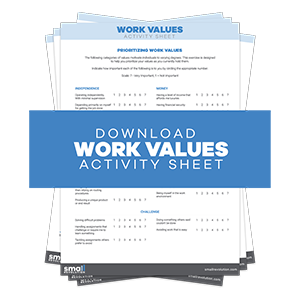While receiving a job offer can be encouraging, you still need to take additional steps to secure the job. Even to the point of the accepting job offer email, with clarifying statements.
Such steps include following up on the offer. Whether the job was offered through a phone call, email, or voicemail. A follow-up email is crucial because it helps to:
- Speed up the hiring process
- Confirm your employment status
- Get more information on the job
Consider sending your follow-up email right after the job offer. This lets the hiring manager or your new boss know that you’re interested in the job and you’re eager to start working.
It could also be an opportunity to respectfully decline a job offer.
Here are 4 follow-up email samples to help you secure the job after an offer.
Email Template 1: Follow Up to Ask For More Information About the Offer
While receiving a job offer is exciting, you need to ask the recruiter some crucial questions before accepting it. This ensures you’re receiving a fair offer and helps you understand the company’s expectations of you.
Some questions to ask include:
- What are my priorities?
- Will I receive any bonuses or commissions?
- How does the company prioritize work-life balance?
- Can I reach out to any of my team members for guidance before I start?
A follow-up email will also give you the closure you need, clearing any doubts about your position with the company.
Email example
Dear (Hiring Manager’s Name),
I’d like to express my gratitude for receiving your job offer for (job title) at (company name). I’m excited about the role and very eager to start working.
After reviewing the offer, I had a few questions that I’d like to seek clarification on, especially on the probation period and the work programs. I’d love to get more details on these terms. Is this something we can discuss soon? I’d be glad to jump on a call with you at your convenient time.
Thanks again for the job offer.
Sincerely,
(Your Name)
Expert Tip: Begin with a thank-you note and use a respectful tone throughout to request an update without putting pressure on the recruiter. A rude and demanding tone will switch the recruiter to defense mode and potentially build resentment.
Email Template 2: Follow Up Asking for More Time to Consider the Offer
Even after passing the job interview, you might still not want or be able to take the job offer right away. And in some cases, you might want to take some time to decide.
There are a couple of reasons for holding back:
- You’ve received multiple job offers.
- You’re now unsure if the job is the right fit for you.
- You’re working through a personal issue or emergency.
- You’re dissatisfied with some aspects of the job offer.
- You’re afraid of making the wrong decision.
While these are valid reasons to ask for more time to consider the job offer, you need to approach your request with gratitude, professionalism, and courtesy.
Thank the recruiter for the opportunity, and keep the email short and precise, sticking to your specific request: more time.

Email example
Hello (Hiring Manager’s Name),
Thank you for considering me for this job position at (company name) While I look forward to putting my skills to use in your company, I’m carefully considering the terms and would need more time to make a decision.
Can I please get back to you by (date)?
I hope this timing is agreeable to you. I’ll be glad to discuss any further questions or concerns.
Thanks!
(Your Name)
Email Template 3: Follow Up to Accept a Job Offer
Your follow up email after accepting a job offer should be brief and contain:
- An appreciation for the job offer
- Terms and conditions of employment
- Starting date and time of employment
Email example
Hi (Employer’s Name),
I’m thrilled to accept the position of (job title) at (company name). Thanks for the opportunity. I’m eager to make a positive contribution to the company and work with your team.
As discussed, my starting salary will be (x amount) with benefits (such as life insurance and vacations).
I look forward to joining the team on (start date).
Please let me know if you need additional information or paperwork as I wait for your directions on how to proceed from here.
Thanks,
(Your Name)
Expert Tip: You want to impress your new boss by keeping a professional tone in your email. Proofread the final draft to ensure your spelling, grammar, and format are in check.
Related: 20 Best Online Jobs for Working from Home
Email Template 4: Follow Up to Decline a Job Offer
You’ve just received an excellent job offer from a company you’d be happy to work with.
However, the offer took a little longer, and you’re now working for your first choice employer. Or you decided to pursue other opportunities after the interview and don’t need the job anymore.
Whatever the case, try to inform the hiring manager of your decision as soon as possible. Dragging out the entire process might cost you a relationship with the hiring manager.
Be polite and grateful to the recruiter, regardless of your reasons for turning the job down.
However, your follow-up email approach entirely depends on why you’re declining the offer.
Let’s look at these 2 scenarios:
Email example after accepting another job offer
Hello (Hiring Manager’s Name),
Thank you for offering me the position of (job title) at (company name). After much consideration, I have decided to take up an offer with another company.
I sincerely appreciate you taking your time to meet me on (the day of the interview) and offering me this job. I wish you all the best in finding the best candidate for the position.
Thanks once again for the offer.
Kindest regards,
(Your Name)
Follow up email example when the job isn’t the right fit
Hello (Hiring Manager’s Name),
Thank you for offering me the opportunity to work at (company name) as (job position).
Though I appreciate your job offer, I regret I will not be accepting the position since it doesn’t align with my long-term career goals.
Thanks again for the opportunity. I wish you all the best in finding a suitable candidate for this role.
Best regards,
(Your Name)
Gain Valuable Skills Through LinkedIn and Get More Job Offers
LinkedIn is the largest professional networking platform in the world, available in 200+ countries, with over 600 million users.
Whether you’re a student seeking a part-time job, or a graduate looking for permanent employment, the platform offers job opportunities in different categories, such as business, art, music, and engineering.
Besides, LinkedIn offers thousands of courses tutored by real-world experts for learners seeking to boost their skills and gain a competitive advantage in the job market.
Here are a few courses:
| LinkedIn Course | Description | Course Link |
| Critical Thinking | Learn essential critical thinking skills to help you solve problems that may arise in your career | Click here |
| Developing Your Emotional Intelligence | Learn how to develop emotional intelligence to build effective work relationships | Click here |
| Be the Manager People Won’t Leave | This course teaches you to relate with your juniors and create a healthy work environment | Click here |
Sign up today and get a 1–month free trial to access thousands of courses before financially committing to the platform.
Devesh says this about the course on emotional intelligence:
The course was well designed and the instructor explained concepts clearly with examples.
Devesh Dahale
Share on Facebook:



